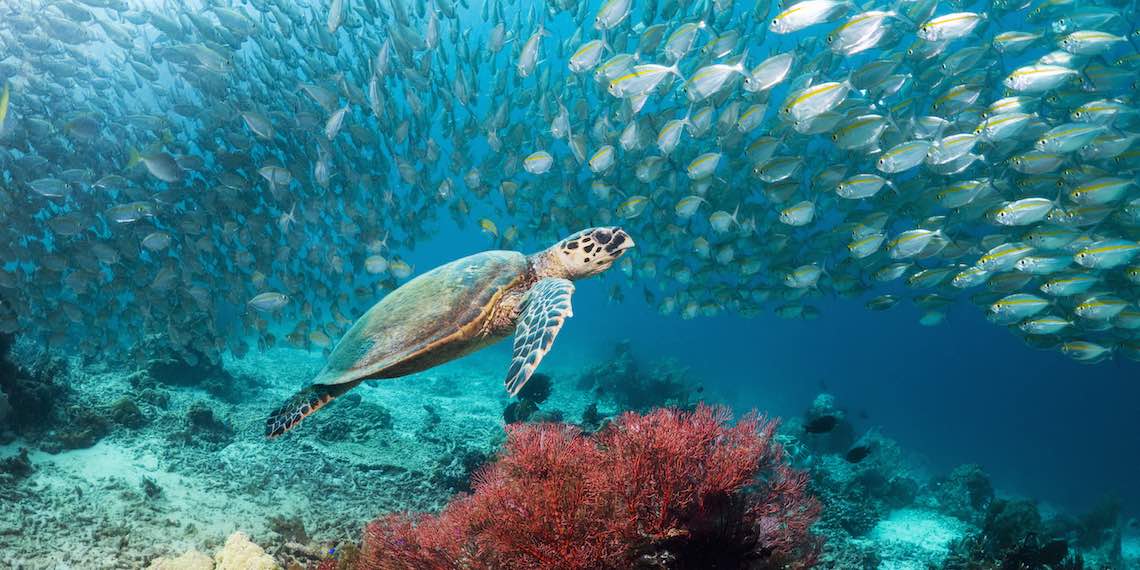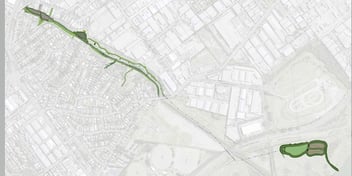Start-up data solution to boost aquatic diversity thanks to KPMG grant

A cloud-based artificial intelligence platform that will help businesses manage their diversity footprint has netted Xylo Systems a $100,000 grant from KPMG as part of the consultancy’s annual Nature Positive Prize.
The Nature Positive Prize, now in its second year, was founded by KPMG Australia to support start-ups working to benefit aquatic environments.
KPMG Senior Sustainability Manager Jonathon Collins said Xylo’s entry showed how data could help companies of all sizes and complexities understand their impact on biodiversity and then transform their operations to enact a nature-positive strategy.
“A huge attractive element of what Xylo are aiming to achieve is to be able to make possible for the first time to aggregate disparate biodiversity data sets, which are super complex,” he said.
“In a lot of cases, this is months’ worth of work, and they are essentially able to transform that process into 20 minutes of analysis by bringing together these data sets.”
Among the industries Collins identified as potentially benefiting from the Xylo platform are property, built environment, asset management, energy, natural resources and even the renewables space itself.
He saw the grant as a way for Xylo to push its technology to a broader market.
“I think that global expansion is what they're really looking at as far as the spend of the prize,” Collins said.
“I think that prize will also help to support the growth of their technology: pulling together some of those complex data sets to make sure that they can provide real time insights for businesses as well.”
The people's choice
Along with the $100,000 winning prize, KPMG awarded for the first time a $50,000 People’s Choice Award.
Voted for by KPMG staff from Australia and the South Pacific, the People’s Choice Award was presented to Cooperative Advantage Alliance, a Papua New Guinean group helping local communities develop sustainable fishing practices and crop management techniques.
“The way in which those organisations operate is very much community-focused first, and some of the funding streams that they have is very different based on the investment that's going into those organisations as well,” Collins said.
“A big part of what their mission is doing is being able to work with cooperative societies – that is, government at different levels, but specifically local communities, to promote best-practice agriculture and fishing industry techniques and be able to conserve biodiversity and marine life in PNG.”
The People’s Choice Award reflects the broadened scope of the Nature Positive Challenge this year, which expanded to include Papua New Guinea and Fiji as well as Australia.
“We see the ability for enterprises and start-ups to play a prominent role in not only economic development in those country contexts, but also in being able to create a market for nature and biodiversity,” Collins said.
“When it comes to the focus on blue economy – blue-carbon opportunities, preservation of coastal marine ecosystems – we know that South Pacific communities are the most vulnerable to climate change. And so a big part of it was being able to identify a theme that also fit within those country contexts.”
Looking to 2030
The Nature Positive Challenge forms part of KPMG’s Climate Action Plan to 2030, and is designed to bolster the company’s commitment to understanding and improving its impact on nature and biodiversity.
“Net-zero is just not possible without scaling technologies and solutions that can contribute high-quality offsets to the market. Those projects have the ability to deliver benefits to habitats, to communities, and a lot of the projects that are popping up in this space are being led by start-ups,” Collins said.
“So we felt that the Nature Positive Challenge was a way of being able to support start-ups that were at the forefront of the nature positive movement.
“Whether that was disrupting the way that we use data or report on our interdependency with nature, the way that regeneration techniques or technologies are mobilised, the way that materials are created, there's a wide array of different solutions in this space.
“And the challenge felt like a really good means of being able to provide not only financial support to some of these start-ups, but then to provide our expertise from an advisory perspective to help to scale them as well.”
After having no specific area of focus in the program’s first year, KPMG’s decision to turn the Nature Positive Challenge’s attention to the blue economy this year was a deliberate effort to align it with the United Nations Sustainability Goals (SDGs), Collins explained.
“This year what we wanted to do was actually home in on two areas and also align to the objectives within the UN SDG, which is to protect life on land and then life below water,” he said.
“Each year we want to be able to focus on what is a prominent or rapidly developing space within the nature-positive dialogue.
“And so when it comes to why the blue economy or nature focus, [it’s because] we know that the blue economy is really about providing that holistic vision that embraces not only nature preservation – oceans, marine, coastal, rivers – and their preservation, but also prosperity and economic growth for communities as well.”


